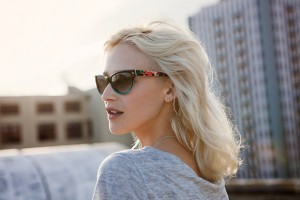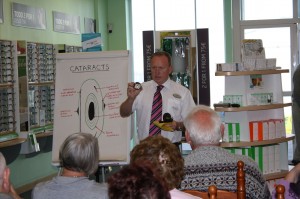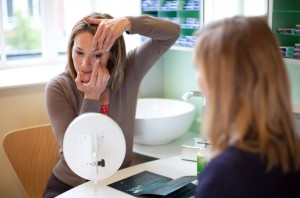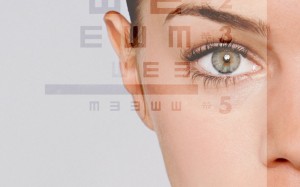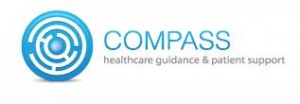Today World Glaucoma Week starts, a campaign of awareness about this very common condition which is known as “the slient destroyer of sight”. With an estimated 60 million suspected cases of glaucoma worldwide, it’s Specsavers Opticas’ aim to raise awareness of this condition, as often people do not understand the severity of the disease, or who can be affected. To help you spot the signs of glaucoma, here is some information from Specsavers Opticas about one of the world’s leading causes of blindness, please share this with friends and family this week.
What is glaucoma and who is at risk? – Glaucoma is a build-up of fluid on the eye which increases pressure and in turn damages the optical nerve. If left untreated it can lead to permanent tunnel vision and blindness. Often there are no symptoms at all in the first stages, and vision loss usually occurs gradually with symptoms only becoming noticeable when severe damage has been done to the optic nerve. Unfortunately there is no cure for this vision loss, so it’s extremely important to have regular eye tests to diagnose the disease as early as possible.
Those over the age of sixty are more at risk of glaucoma, however babies and young adults can also suffer from the disease. People of African origin are more at risk of glaucoma at a younger age. Other high risk groups include anyone with family history of glaucoma, people who are severely short sighted and diabetics.
How is glaucoma diagnosed? – Although it can be difficult for the patient to identify the signs of glaucoma, an in-depth eye test is all that is required to catch the condition early. There are three ways that opticians look for signs of glaucoma;, through an Ophthalmoscopy (a visual examination of the optic nerve head), Tonometry (a measurement of the pressure within the eye) and Perimetry (a check of the field of vision). Not all eye tests include these elements, so ask your optician.



